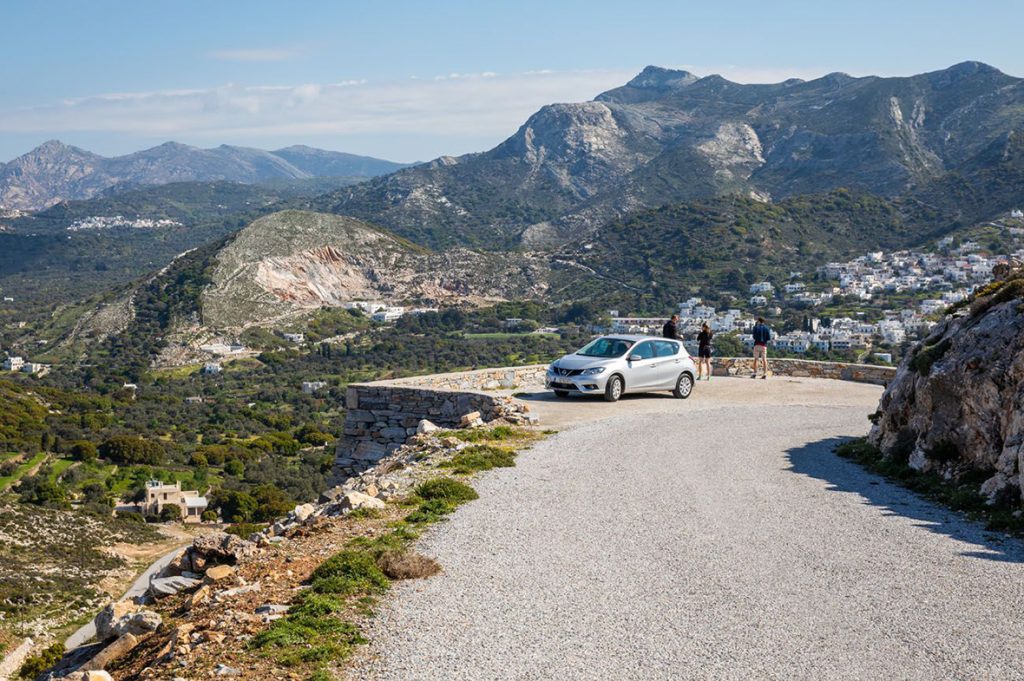Greece, with its timeless history, stunning landscapes, and vibrant culture, is a dream destination for adventurers seeking a Mediterranean escape. While Greece boasts an efficient public transportation system, embarking on a road trip offers an unparalleled opportunity to explore hidden gems and off-the-beaten-path treasures. We’ll navigate the intricacies of renting a car in Greece, equipping you with essential tips to ensure a seamless and memorable Mediterranean expedition.
1. Choosing Your Rental Provider
Research and Compare: Conduct thorough online research and compare rental car companies before your trip. Seek reputable providers with positive customer reviews and a strong presence at your arrival destination.
Early Booking: To secure the best rates and availability, book your rental car well in advance, particularly if your visit coincides with Greece’s peak tourist season.
Examine the Fine Print: Scrutinize the terms and conditions of your rental agreement, including insurance coverage, mileage limits, and fuel policies, to avoid unexpected charges.
2. Selecting the Perfect Vehicle

Size Considerations: When selecting a vehicle, take into account the size of your group and your luggage. Compact cars are economical, while larger vehicles offer enhanced comfort for families or groups.
Transmission Preference: Be mindful that most rental cars in Greece feature manual transmission. If you’re more comfortable with an automatic, reserve one in advance, as they are in high demand.
Fuel Efficiency: Opt for a fuel-efficient vehicle to save on fuel costs as you traverse the country.
3. International Driving Permit (IDP)
Check Requirements: Verify whether Greece mandates an International Driving Permit (IDP) for tourists. Certain rental companies may require it, especially if your driver’s license isn’t in English or Greek.
Apply in Advance: If an IDP is necessary, apply for one before your trip through your local automobile association or online. Doing so ahead of time ensures you meet all requirements.
4. Navigation and Maps
GPS Rental: Consider renting a GPS device with your car or using a reliable navigation app on your smartphone. Greek road signs can be complex to decipher.
Maps and Apps: Download offline maps and navigation apps in advance to avoid data roaming charges and stay connected even in remote areas.
5. Greek Roads and Driving Etiquette
Varied Road Conditions: Greece features a spectrum of road types, from modern highways to meandering mountain routes. Prepare for diverse driving conditions.
Driving Habits: Greeks are known for their assertive driving style. Exercise caution, adhere to local speed limits, and obey traffic laws diligently.
Parking Challenges: In urban areas and tourist hotspots, parking can be limited and challenging. Seek accommodations with parking facilities or research public parking options ahead of time.
6. Fueling Up and Toll Roads
Fuel Stations: Gas stations are prevalent in Greece, with most operating during standard business hours. Some stations offer 24-hour service.
Toll Roads: Greece boasts toll roads, particularly on major highways. Ensure you carry cash for toll payments or inquire about electronic toll payment options with your rental provider.

7. Insurance and Safety Measures
Collision Damage Waiver (CDW): Prioritize adequate insurance coverage, such as a Collision Damage Waiver (CDW), to limit your liability in case of accidents or damage to the rental vehicle.
Safety Kit: Maintain a safety kit in your car, including a warning triangle, reflective vests, and a first-aid kit, in compliance with Greek law.
Emergency Numbers: Familiarize yourself with local emergency numbers, including those for the police (100), medical assistance (166), and fire emergencies (199).
8. Venturing Beyond the Mainland
Island Ferries: If your itinerary includes Greek islands, research ferry schedules and arrange car transport in advance. Keep in mind that not all islands have rental car services, so plan accordingly.
Mountainous Roads: When traveling in mountainous regions, exercise caution, especially during the winter months. Monitor weather conditions and road closures before embarking on mountain journeys.
9. Returning Your Rental Car
Fueling Up: Most rental companies require you to return the vehicle with a full tank of fuel. Refuel close to the drop-off location to avoid additional charges.
Thorough Inspection: Before returning the car, thoroughly inspect it for any new damage and ensure it matches the condition outlined in the rental agreement. Document any discrepancies with photographs.
Punctual Return: Return your rental car on time to avoid late fees. Be aware of the rental company’s office hours, particularly if your flight departs early or arrives late.
Renting a car in Greece unlocks a realm of possibilities, allowing you to explore the country at your own pace and discover hidden treasures along the way. Armed with these top car rental tips, you’re well-equipped for a Mediterranean expedition filled with awe-inspiring landscapes, historical wonders, and the freedom to navigate Greece on your own terms. So, pack your bags, buckle up, and get ready for an unforgettable road adventure through the land of myth and history. Your Greek odyssey awaits!



